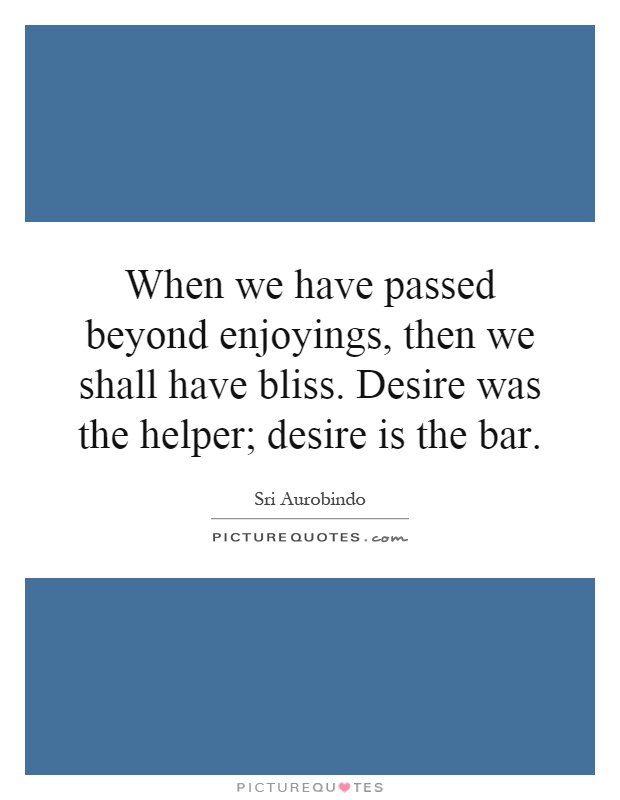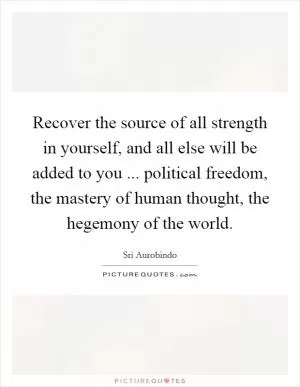When we have passed beyond enjoyings, then we shall have bliss. Desire was the helper; desire is the bar

When we have passed beyond enjoyings, then we shall have bliss. Desire was the helper; desire is the bar
Sri Aurobindo, a renowned Indian philosopher, poet, and spiritual leader, delves deep into the concept of desire and its role in attaining true bliss in his teachings. In the quote, “When we have passed beyond enjoyings, then we shall have bliss. Desire was the helper; desire is the bar,” Aurobindo highlights the paradoxical nature of desire and its impact on our spiritual journey.Desire, according to Aurobindo, serves as a catalyst for our growth and evolution. It is through desire that we are driven to seek out experiences, relationships, and material possessions that bring us pleasure and satisfaction. However, Aurobindo warns that desire can also act as a barrier to true bliss. When we become too attached to our desires and seek fulfillment solely through external sources, we are bound by the limitations of our ego and the transient nature of the material world.
True bliss, according to Aurobindo, can only be attained when we transcend the realm of enjoyments and detach ourselves from the constant cycle of desire and fulfillment. It is only when we let go of our attachment to external pleasures and turn inward towards our true self that we can experience the eternal and unchanging bliss that lies within us.
Aurobindo’s teachings emphasize the importance of self-awareness, self-discipline, and self-transcendence in overcoming the barriers that desire creates on our spiritual path. By cultivating a sense of detachment from our desires and learning to find contentment and fulfillment within ourselves, we can break free from the limitations of the ego and connect with the divine essence that resides within us.












 Friendship Quotes
Friendship Quotes Love Quotes
Love Quotes Life Quotes
Life Quotes Funny Quotes
Funny Quotes Motivational Quotes
Motivational Quotes Inspirational Quotes
Inspirational Quotes